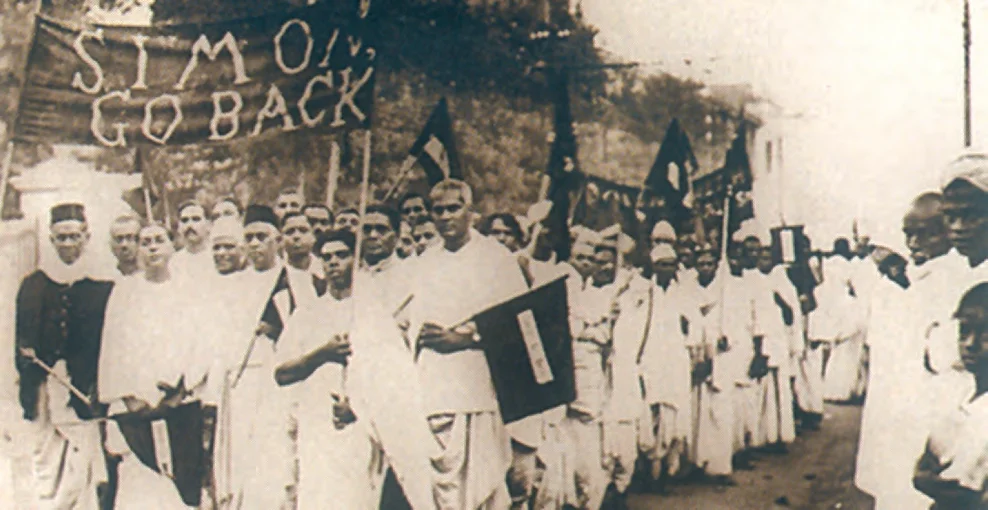In British India (1922-1929), significant events unfolded, marked by the Non-Cooperation Movement’s launch, advocating nonviolent resistance against British rule. The Chauri Chaura incident led Gandhi to suspend the movement. Meanwhile, the Simon Commission, boycotted by Indians, intensified demands for self-rule. These events fueled the momentum toward India’s independence struggle.
Chauri Chaura Incident: In February 1922, Gandhi Ji abruptly called off the Non-Cooperation Movement after the violent Chauri Chaura incident, where twenty-two policemen were killed during a peaceful peasant demonstration in response to police firing.


The Salt March was notable for at least three reasons:
| Must Read | |
| Current Affairs | Editorial Analysis |
| Upsc Notes | Upsc Blogs |
| NCERT Notes | Free Main Answer Writing |
The Non-Cooperation Movement faltered but led to social work that bolstered later activism. The Simon Commission boycott and demand for Purna Swaraj intensified calls for self-rule. Gandhi’s symbolic Salt Satyagraha, with mass participation by women and men, garnered global attention and marked a turning point in the fight for Indian independence.
| Related Articles | |
| Mahatma Gandhi on Swaraj and BR Ambedkar on Social Justice | Civil Disobedience Movement |
| CHAURI-CHAURA INCIDENT (5 FEBRUARY 1922) | SIMON COMMISSION 1927 |
<div class="new-fform">
</div>